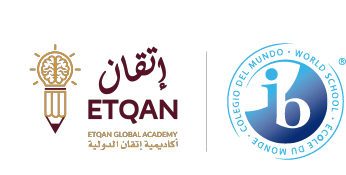Why do we offer the IB ?
At EGA we offer the IB Program as it enables students to direct their own learning pathway and develop the skills and confidence they need to thrive and make a lasting difference. The IB empowers teachers as the architects of learning excellence, working alongside engaged colleagues in a rewarding career supported by a strong global network.
-
Early years are considered critical for development, and play is primarily responsible for curiosity, because children pick basic knowledge and abilities from play. Play-based learning can foster the growth of thinking, research, communication, social, and self-management abilities. Children who play develop critical and creative thinking, solve issues, and use their knowledge and abilities in several contexts. Through playful interactions, they record observations, network, and negotiate relationships. Playing allows children to express their creativity, feel happiness, and make meaning of their experiences. It can also help one overcome emotional suffering, lower anxiety, and restore normalcy amid trying circumstances.
-
PYP early years student agency emphasises the need to allow children to own their education. Agency is the ability of the individual to take deliberate and meaningful action respecting their rights and obligations. Under a learner-centred approach such as the IB curriculum, students engage more actively in their educational experience. They can decide on unique activities, create their objectives, and consider how they have developed. This method develops critical thinking, judgement, and problem-solving ability.
-
Six transdisciplinary topics of global relevance—who we are, where we are in place and time, how we express ourselves, how the world works, how we organise ourselves, and even share the planet—formulate the curriculum. These themes let students investigate areas outside of their disciplines and observe their practical relevance. Students can develop ideas and abilities in many disciplines through this all-encompassing learning process.
-
As the name implies, in inquiry-based learning, students work on projects motivated by questions. This method motivates pupils to create reasonable objectives, probe exciting topics, and tenaciously follow their dreams. More profound learning results from investigating fresh ideas, changing hypotheses, and finding new difficulties.
-
In the PYP, the assessment includes pre-assessment, formative assessment, and summative assessment.
Pre-assessment determines students’ prior knowledge and skills, while formative assessment informs teaching and learning throughout a unit of inquiry. Summative assessment measures students’ understanding of central ideas and their progress.
Teachers can regularly reflect on the outcomes of assessments and use this information to improve future teaching and learning.
Student portfolios are also used to collect and store evidence of learning, celebrating students’ achievements and progress. They may include samples of work, assessments, and reflections, providing a complete overview of each student’s learning journey.
Etqan Superpark
Welcome to Etqan SuperPark – Where Fun Meets Learning in a Safe Environment!
SuperPark is an all-in-one indoor activity park designed for kids and students to explore, learn, and enjoy in a safe and exciting environment. Our park offers a variety of interactive play zones, educational activities, and thrilling challenges that promote physical activity, creativity, and teamwork.
With state-of-the-art safety measures, trained staff, and age-appropriate activities, SuperPark ensures that every child experiences the perfect balance of fun and learning. Whether it's engaging in STEM-based play areas, obstacle courses, or sports activities, SuperPark is the ultimate destination for adventure and discovery.
Come and experience a world where education and entertainment come together – because at Etqan SuperPark, learning has never been this fun!

